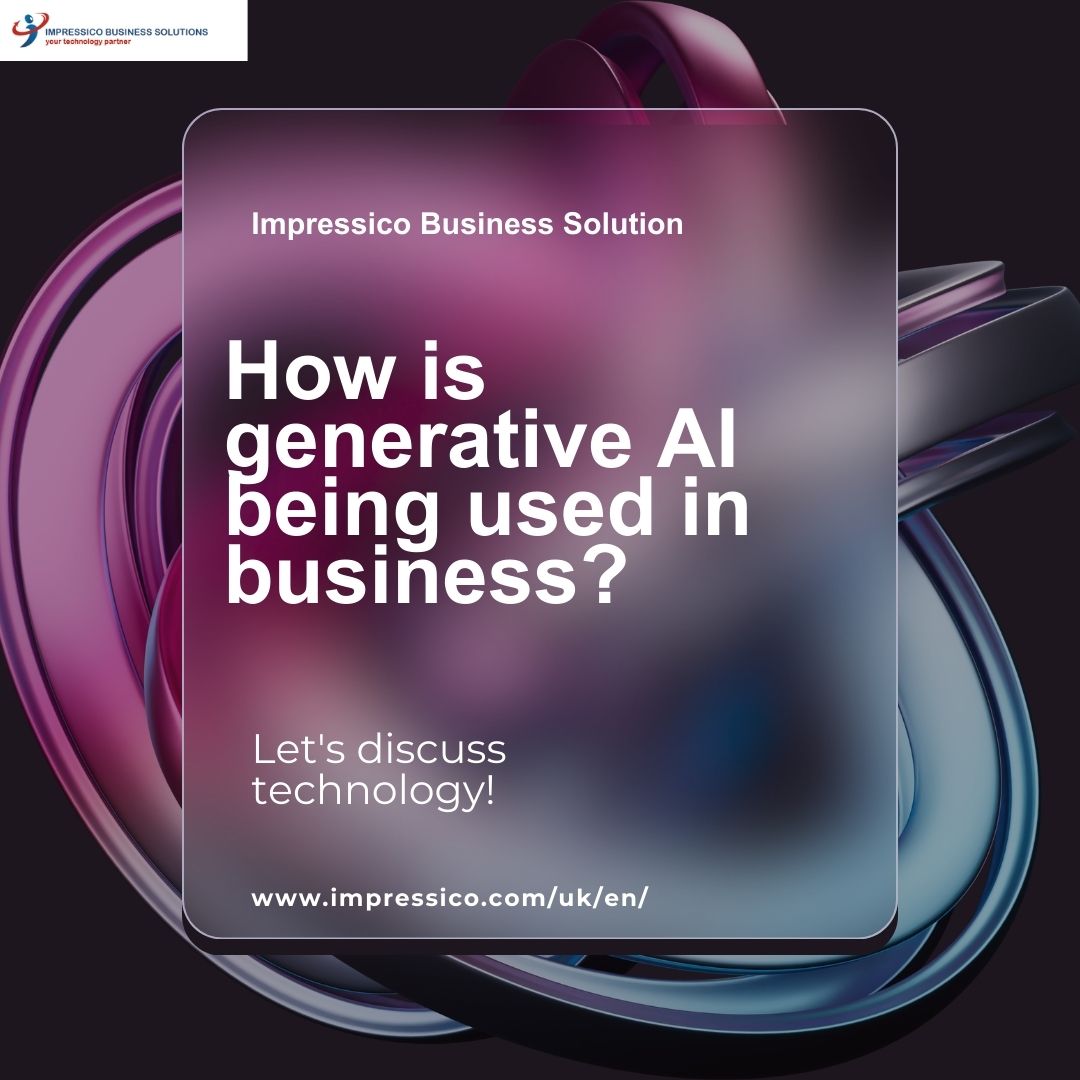
The advent of generative AI has opened up new possibilities for digital business transformation. With capabilities like natural language processing, machine learning, and neural networks, generative AI allows businesses to automate processes, gain insights, and create content in ways not previously possible.
Here are some of the key ways businesses are utilizing this emerging technology:
Enhancing Customer Service
Many companies are using chatbots and virtual assistants powered by generative AI to respond to routine customer inquiries. These AI agents can understand natural language questions and provide answers quickly and accurately 24/7. This improves customer satisfaction while reducing the need for human agents for simple requests. Brands like Mastercard and Hilton deploy generative AI chatbots.
Automating Content Creation
Tools for generative AI for business can automatically create all types of content including reports, social media posts, and blog articles. Rather than paying a copywriter, a business can simply provide a few prompts and key points and AI will generate polished, on-brand content. This content can then be posted to websites and shared on social media to reach new audiences faster.
Improving Decision Making
By analyzing massive amounts of data across the organization, generative AI can surface patterns and insights humans alone may miss. It can track key performance metrics, predict future trends, and recommend optimal strategies based on past successes. This gives leadership data-driven recommendations to make better, faster decisions. Capital One uses generative AI called Eno to analyze finances and alert customers to unusual spending.
Enhancing Data Management
Generative AI is a massive timesaver when it comes to organizing enterprise data. The technology can efficiently sort, structure, and standardize large datasets without needing human data scientists to step in. By keeping data clean and structured, generative AI makes it easier for businesses to access and leverage data analytics. This helps various teams gain valuable insights faster. Microsoft incorporates generative AI within Microsoft Power Platform for low code development.
Improving Predictive Modeling
Sophisticated machine learning algorithms allow businesses to build highly accurate predictive models. Generative AI can factor in millions of data points across customers, transactions, market factors, and other metrics to predict future outcomes within an acceptable band of certainty. Brands can anticipate needs, mitigate risks, and meet demand with better forecasting models through generative AI.
Increasing Knowledge retention
While transactional data has a short life span, derivative data generated from it e.g. analytics, insights, etc have a longer lifespan. Generative AI for businesses allows them to enhance their knowledge graph about customers, so they have a historical memory allowing them to better serve high-value customers.
Accelerating Software Delivery
Generative AI tools can automate parts of the software development lifecycle to accelerate the delivery of products. This facilitates continuous integration and deployment by integrating DevOps services.
Summing Up
As the examples show, generative AI has wide-ranging business benefits when it comes to digital business transformation and DevOps services. It allows brands to transform customer experiences, supercharge marketing, optimize operations, and make smarter data-based decisions across the organization. As the technology matures, virtually every vertical from finance to healthcare can derive value and competitive advantage from generative AI done right.
FAQs
1.What is generative AI, and how is it utilized in business environments?
Generative AI refers to artificial intelligence technologies that can generate new content, insights, or data that didn’t exist before. In business, it’s applied in various ways, including automating content creation for marketing, developing predictive models for better decision-making, enhancing customer service with intelligent chatbots, and streamlining data management. By leveraging patterns and information from existing datasets, generative AI creates novel outputs, enabling businesses to innovate and improve efficiency.
2.Can generative AI improve customer interaction and service?
Yes, generative AI significantly enhances customer interaction and service. By employing AI-powered chatbots and virtual assistants, businesses can provide instant, 24/7 support to their customers. These AI systems are capable of understanding and processing natural language queries, offering personalized responses, and solving a wide array of customer inquiries without human intervention. This not only boosts customer satisfaction through timely assistance but also allows businesses to scale their customer service operations effectively.
3.How does generative AI contribute to content creation?
Answer: Generative AI transforms content creation by automating the generation of various types of content, such as articles, reports, social media posts, and more. Businesses can input a set of criteria or prompts into generative AI tools, which then produce original, on-brand content. This technology not only speeds up the content creation process but also helps maintain a consistent tone and style, enabling businesses to engage their audience more effectively and efficiently.
4.In what ways does generative AI assist in data analysis and decision-making?
Generative AI assists in data analysis by processing and analyzing vast amounts of data at speeds unattainable by humans. It identifies patterns, trends, and correlations within the data, providing businesses with actionable insights and forecasts. This capability allows companies to make informed decisions swiftly, optimize strategies, and identify opportunities for growth and improvement, thereby enhancing their competitive edge in the market.
5,What are the future prospects of generative AI in business?
The future of generative AI in business is promising and expected to usher in even more innovative applications. Beyond its current uses, generative AI is anticipated to play a pivotal role in personalized product design, sophisticated simulation models for strategic planning, and advanced anomaly detection for security purposes. As the technology evolves, it will continue to unlock new possibilities for automation, creativity, and efficiency across various business domains, driving significant transformations in how companies operate and deliver value.






